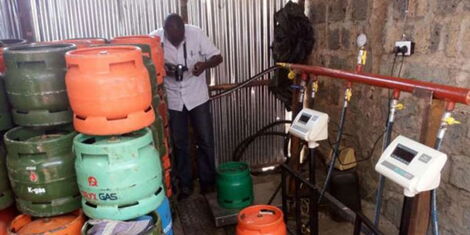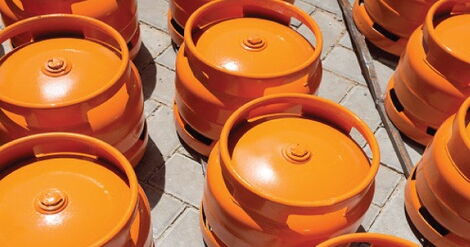Kenyans resorted to using charcoal, kerosene and other alternative energy sources for cooking and other domestic uses after the price of cooking gas increased by Ksh500 in one week.
Reports indicated that a six kg cylinder that was previously sold for Ksh1,800 surged to Ksh2,600.
In comparison, a 13kg cylinder that previously retailed at Ksh2,600 increased to Ksh3,100 in Nairobi.
Informing Kenyans of the changes, local retailers contacted their customers, stating that the increase in gas prices resulted from government regulatory measures.

“Due to government regulations, gas prices have increased. In case of a reduction, we will let you know,” the message from gas retailers read in part.
However, because the price of cooking gas was not regulated by the Energy and Petroleum Regulatory Authority (EPRA), consumers are at the mercy of market dynamics.
Key industry players attributed the increase in gas prices to the weakening of the Kenyan shilling against the US dollar.
On Thursday, February 9, businessmen in the sector lamented that their ventures were greatly affected by the price hikes as customers sought alternatives.
“People are telling me that they cannot afford gas. They are buying kerosene instead. We used to sell up to 20 cylinders in a day and now we sell as low as two cylinders in a day,” lamented Abdulahi Abdi, a retailer in the sector.
Other retailers added that they were forced to pause their business to look for money to refill their cylinders.
Additionally, businessmen in the food industry also complained of the hike in gas prices, stating that their businesses were greatly affected.
“There are some types of food that I used to cook, but I had to stop cooking them because it consumes a lot of gas and charcoal.
“Food like beans and maize consume a lot of charcoal. That also means that customers who wanted to buy such kind of food will go somewhere else,” Peter Mwangi stated.

Source: kENYANS.CO.KE




